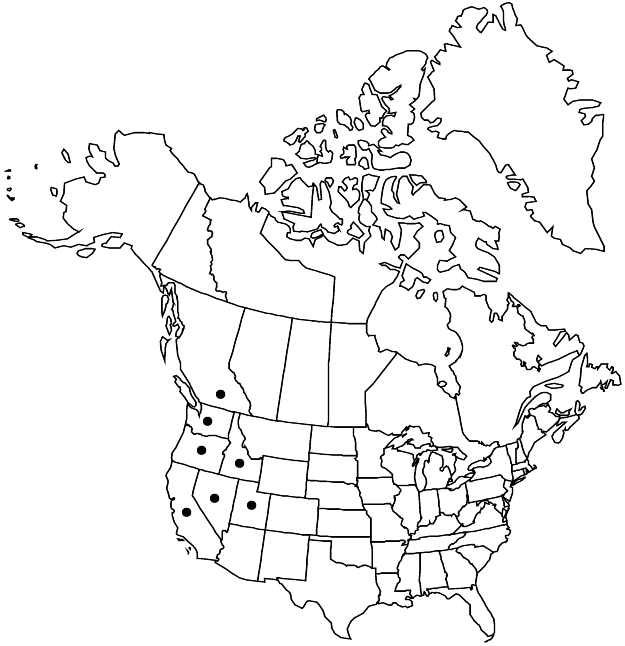Difference between revisions of "Minuartia pusilla"
Bot. Jahrb. Syst. 57(Beibl. 126): 28. 1921.
FNA>Volume Importer |
FNA>Volume Importer |
||
| Line 11: | Line 11: | ||
|name=Arenaria pusilla | |name=Arenaria pusilla | ||
|authority=S. Watson | |authority=S. Watson | ||
| + | |rank=species | ||
|publication_title=Proc. Amer. Acad. Arts | |publication_title=Proc. Amer. Acad. Arts | ||
|publication_place=17: 367. 1882 | |publication_place=17: 367. 1882 | ||
| Line 17: | Line 18: | ||
|name=Alsinopsis pusilla | |name=Alsinopsis pusilla | ||
|authority=(S. Watson) Rydberg | |authority=(S. Watson) Rydberg | ||
| + | |rank=species | ||
}} | }} | ||
|hierarchy=Caryophyllaceae;Caryophyllaceae subfam. Alsinoideae;Minuartia;Minuartia pusilla | |hierarchy=Caryophyllaceae;Caryophyllaceae subfam. Alsinoideae;Minuartia;Minuartia pusilla | ||
| Line 40: | Line 42: | ||
-->{{#Taxon: | -->{{#Taxon: | ||
name=Minuartia pusilla | name=Minuartia pusilla | ||
| − | |||
|authority=(S. Watson) Mattfeld | |authority=(S. Watson) Mattfeld | ||
|rank=species | |rank=species | ||
| Line 55: | Line 56: | ||
|publication year=1921 | |publication year=1921 | ||
|special status= | |special status= | ||
| − | |source xml=https://jpend@bitbucket.org/aafc-mbb/fna-data-curation.git/src/ | + | |source xml=https://jpend@bitbucket.org/aafc-mbb/fna-data-curation.git/src/f50eec43f223ca0e34566be0b046453a0960e173/coarse_grained_fna_xml/V5/V5_271.xml |
|subfamily=Caryophyllaceae subfam. Alsinoideae | |subfamily=Caryophyllaceae subfam. Alsinoideae | ||
|genus=Minuartia | |genus=Minuartia | ||
Revision as of 21:52, 16 December 2019
Plants annual. Taproots threadlike. Stems spreading to erect, green, 1–5 cm, glabrous, internodes of all stems 2–10 times as long as leaves. Leaves not overlapping, irregularly spaced, connate proximally, with loose, mostly herbaceous sheath 0.2–0.3 mm; blade ascending to widely spreading, green, concave proximally, flat distally, obscurely 1-veined, awl-shaped to lanceolate, 1.5–5 × 0.2–1.5 mm, flexuous, margins not thickened, scarious throughout or proximally, smooth, apex green or purple, acute to obtuse, flat to navicular, often shiny, glabrous; axillary leaves absent. Inflorescences 2–9-flowered, open cymes; bracts subulate, herbaceous, margins scarious proximally. Pedicels 0.1–0.5 cm, glabrous. Flowers: hypanthium disc-shaped; sepals 1-veined, or weakly 3-veined in proximal 1/5, ovate to lanceolate (herbaceous portion lanceolate to narrowly so), 1.5–3.5 mm, not enlarging in fruit, apex green or purple, acute to acuminate, not hooded, glabrous; petals narrowly lanceolate, 0.5–1 times as long as sepals, apex narrowly acute, entire, or absent. Capsules on stipe ca. 0.1 mm, ± ovoid, ca. 3 mm, equaling or longer than sepals. Seeds brown or reddish, asymmetically reniform with radicle prolonged into beak, not compressed, 0.5–0.6 mm, minutely papillate.
Phenology: Flowering spring–summer.
Habitat: Plains, pine barrens, dry rock cliffs
Elevation: 50-2400 m
Distribution

B.C., Calif., Idaho, Nev., Oreg., Utah, Wash.
Discussion
Selected References
None.